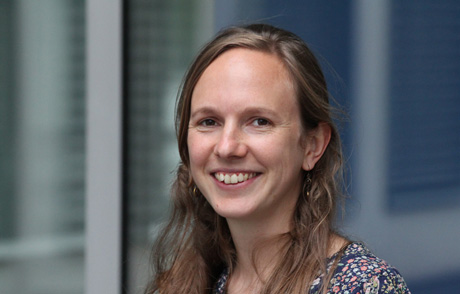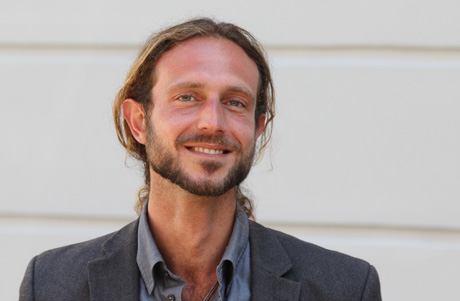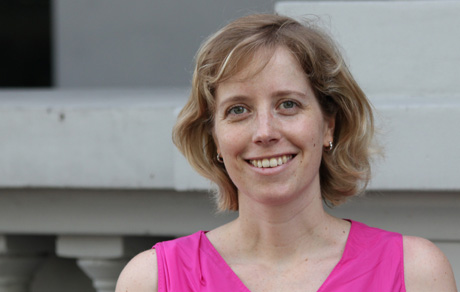Different Ways of Advancement
Doctoral students usually spend three years at the URPP Asia and Europe writing their doctoral thesis. But where do they go as funding comes to an end? Three alumni report on their individual track after leaving the URPP.
Roman Benz
An employment at the URPP Asia and Europe enables doctoral students to work on their research projects for three years. Whether these students are reading relevant literature, carrying out field research, or discussing methodological questions with colleagues, the URPP offers the necessary time as well as a stimulating environment for thorough research.
But how have former doctoral students proceeded after their employment at the URPP Asia and Europe? Three alumni give insights into their later achievements, showing us that there is more than one way to succeed in academics or working life.
Better conditions for foster children
After studying social and cultural anthropology, Claudia Nef Saluz joined the URPP Asia and Europe to work on a doctoral thesis on Islamic student activism in Indonesia. She spent more than a year carrying out field research at Indonesian universities where she interviewed student activists, especially members of the pan-Islamic organization Hizbut Tahrir. As funding through the URPP came to an end, follow-up financing for one year was granted by the University of Zurich’s Forschungskredit, enabling her to finish the doctoral thesis.

Claudia Nef Saluz has in the meantime altered her field of work substantially. She works now as a research associate at the Department of Social Work of the University of Applied Sciences St. Gallen, having joined a project aimed at understanding the necessary conditions for healthy development in foster children.
How can Claudia Nef Saluz use her abilities developed during her stay at the URPP Asia and Europe? She recognizes advantages at different levels. Practically, she benefits from her experience in conducting interviews. To obtain a solid foundation for her actual research, she interviews former foster children and their foster parents. In analyzing the data, she can rely on the theoretical skills refined in many discussions and seminars at the URPP Asia and Europe: “I learned to question normative claims, which are often secretly guiding our perception.” As an example, she mentions the term ‘child welfare’ that is often used in the context of foster children, but often in a superficial manner. She finds the clarification of various concepts behind terms like ‘child welfare’ to be an interesting and worthwhile challenge.
Coins of interest
The career of ancient historian Marco Vitale is focused on his special field of interest, the ancient Near East. His doctoral project explored the administrative organization of Asia Minor under Roman rule. Today, he conducts research on the symbolic representation of subject peoples and territories in the Persian, the Hellenistic, and the Roman periods. The main sources for his habilitation project are ancient coins and reliefs depicting personifications of subject peoples or triumphal processions carried out after successful campaigns.

Marco Vitale’s actual research is supported by grants from the Committee for Academic Career Development of the University of Zurich and the Gerda Henkel Foundation. He lives in Oxford and is affiliated with the Faculty of Classics at the University of Oxford. Before his stay in England, he finished his doctoral thesis in Münster, Germany, funded by a fellowship from the Swiss National Science Foundation.
Marco Vitale emphasizes that he benefited a lot from the methodological discussions held at the URPP Asia and Europe. “In ancient history, modern theories don’t play an important role, because we are following a traditionally hermeneutical and source-oriented approach,” he explains. These discussions required him to grapple with modern theories, helping him to realize that they would impose unnecessary restrictions on his research. The scarcity of available sources for ancient history means that each discovery of new source material threatens to overthrow an existing theory.
Managing different views and positions
Holding a degree in law and in economics, Catherine Chammartin decided to look for a challenge outside the university environment. After finishing her doctoral thesis on state-owned banks in China and in Switzerland, she took up employment with the Federal Department of Finance in Berne. She is now head of section at the State Secretariat for International Financial Matters and deals with international tax policy. Among other things, she participated in the negotiations over the withholding tax agreements with Germany, the United Kingdom and Austria as well as in the elaboration of the Swiss government’s financial center strategy.

Catherine Chammartin appreciates the practical aspects of her work. “It is politically highly relevant and not without consequences for the Swiss financial sector and for the international reputation of the country,” she says.
While most doctoral students are employed by the URPP Asia and Europe, Catherine Chammartin worked as a research associate at the Faculty of Law. At the same time, she was a member of the URPP and to this day she benefits from the experiences she gained from it. “At a university you tend to spend most of your time with people studying the same subjects,” she recalls. At the URPP she became acquainted with people holding quite divergent opinions and she learned how to handle these differences. This is helpful in her present field of work as well, where she has to mediate between many different views and positions.
As these brief portraits show, doctoral studies at the URPP Asia and Europe open up different ways to advance in one’s field. Accordingly, personal inclinations and arising opportunities should not be underestimated.
Doctoral Program
The former doctoral students portrayed in the text above joined the URPP Asia and Europe before the structured “Interdisciplinary Doctoral Program Asia and Europe” was established in the 2009 Fall semester. Nowadays, doctoral students at the URPP pursue their Ph.D. within the framework of curricula serving to deepen and expand both interdisciplinary and disciplinary competencies along with transferable skills. There is a minimum requirement of 30 credit points. The core of the program is the writing of a doctoral thesis.
(Asia & Europe Bulletin, 2/2013, pp. 17–18)